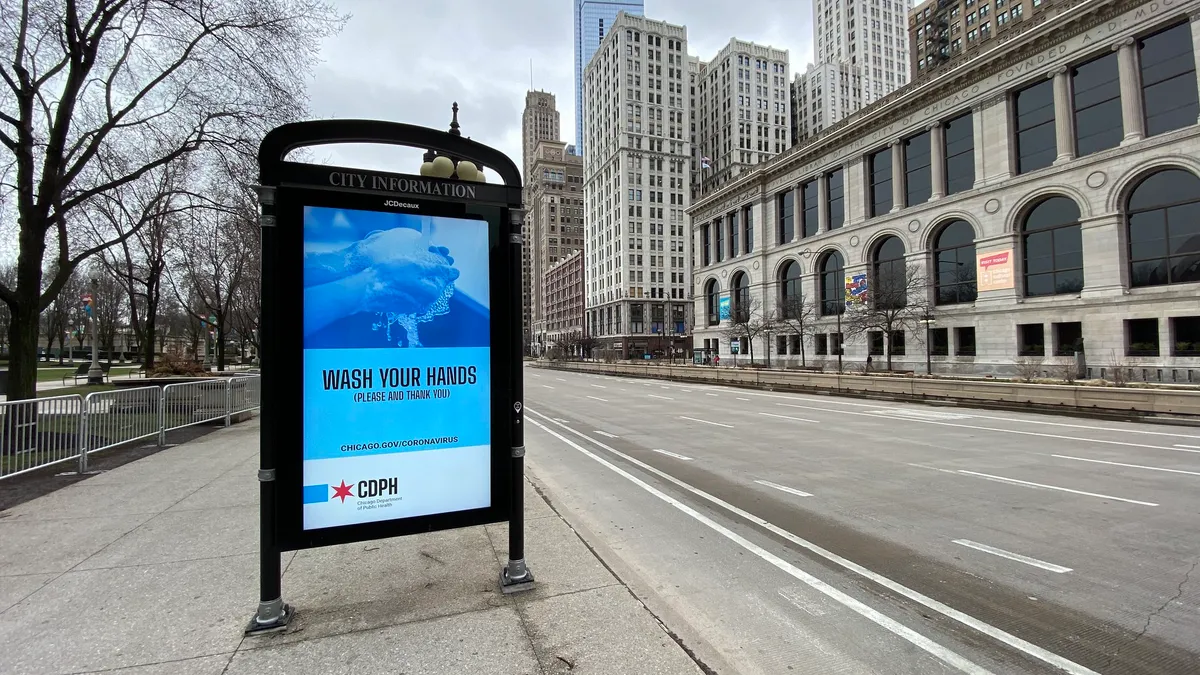UPDATED, July 21, 2020: The U.S. Conference of Mayors (USCM) is doubling down on its calls for $250 billion in federal funding to support flexible emergency assistance in all cities.
In a letter to Congressional leaders, USCM leadership said dynamics of the pandemic, including "precipitous" declines in tax revenue, have "decimated city budgets" and resulted in unemployment for more than 1.5 million state and local government workers. USCM also restated the disadvantages of Congress' decision to exclude cities from CARES Act funding if they did not meet a threshold of 500,000 in population.
The letter follows a joint call for the $250 billion in emergency funding from USCM and the National League of Cities in April. That request accompanied a survey that found 88% of local government respondents anticipate "painful reductions in revenue this year" due to the pandemic.
"To date, most American cities have received no direct assistance at all. That is why we have asked that cities of all sizes be eligible for federal aid, and that it be flexible enough to support the individual budget needs of cities," the letter reads.
"It is also important to appreciate that these budget shortfalls are not a blue state or a red state challenge. The virus knows no geographic boundaries or party affiliation, and there are budget crises in every state and in cities big and small."
Dive Brief:
- The U.S. Conference of Mayors (USCM) and the National League of Cities (NLC) conducted a survey of more than 2,400 local officials, of which 88% of respondents said they anticipate the novel coronavirus pandemic will lead to "painful reductions in revenue this year." Of these respondents, 1,968 represent cities with populations of less than 500,000, which did not receive support from the recent Coronavirus Aid, Relief and Economic Security Act (CARES Act) stimulus package.
- The survey found 96% of cities are seeing budget shortfalls due to unanticipated revenue declines, which are a result of lost revenue sources from services such as permitting fees, utility fees and sales taxes.
- To alleviate this strain on governments, USCM and NLC are calling on Congress to issue $250 billion in emergency funding for all communities seeking COVID-19 relief.
Dive Insight:
Only 38 of more than 19,000 American cities, towns and villages are eligible for funding from the CARES Act due to population size. This is equivalent to less than 0.5% of all municipalities and only represents 14% of the country's total population, according to data from USCM and NLC.
In a press call co-hosted by the organizations, Kathy Maness, council member of Lexington, SC and NLC first vice president, questioned the true value of local-level funding from the CARES Act. "How can this bill be the bill that's supposed to help America respond and recover, when cities in 27 of our 50 states are not going to receive any direct relief funding?" she asked.
Louisville, KY Mayor and USCM Vice President Greg Fischer echoed these remarks. "The cold reality of this pandemic is, the costs of these actions to take care of our city right now are blowing massive holes in our budget," he said.
Unlike the federal government, local governments are often legally prohibited from running annual budget deficits, requiring a balanced budget.
This has left cities "hanging by a thread," said Vince Williams, mayor of Union City, GA and NLC second vice president. "The federal government needs to understand, when we're talking about achieving balanced budgets, we don’t need to play with people’s lives."
Leaders are hopeful that the requested $250 billion in relief, if issued by the federal government, would be enough to keep cities afloat amid the pandemic.
Some Congressional leaders have recognized the funding calls. Last week, Rep. Joe Neguse, D-CO, introduced the "Coronavirus Community Relief Act," which would provide $250 billion in funding to cities with populations of 500,000 or less.
House Speaker Nancy Pelosi and Senate Minority Leader Chuck Schumer are also pressing the federal government for an additional $150 billion in relief for state and local governments grappling with depleted tax revenues. That funding would support over 700 municipalities (compared to 36 currently supported by federal aid), said Dayton, OH Mayor and USCM Second Vice President Nan Whaley on the press call.
“Cities know one thing though: If the money isn’t directly allocated, it’s awful hard to get it," she said. This sentiment has spurred additional efforts to get funding straight into cities' hands, such as the recently launched Local Bailout for the Many, in which more than 100 local and state elected officials outlined guidance and calls to action to increase local relief measures.
Beyond receiving aid to deal with current impacts of COVID-19 on cities, leaders are also looking ahead to what will be needed for recovery efforts — and who will be in charge of that recovery.
Whaley referenced a daily call between Ohio Gov. Mike DeWine and the state's seven largest cities, including Dayton, to discuss potential recovery strategies and ensure Ohio's top leaders are on the same page. "It will not be like a switch," she said, "but a slow and gradual open when that comes."
Other leaders are concerned about local leaders' ability to make those calls, citing President Trump's recent declaration of authority over when the economy reopens.
“The federal government needs to stay in their lane," Los Angeles Council Member and NLC President Joe Buscaino said on the call. "States, municipalities heavily rely on the federal government for resources and relief. But we need to ensure that our state executives can make those decisions. That’s by law, per Constitution."
To keep up with all of our coverage on how the new coronavirus is impacting U.S. cities, visit our daily tracker.













